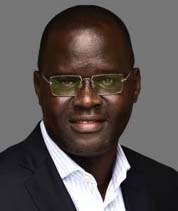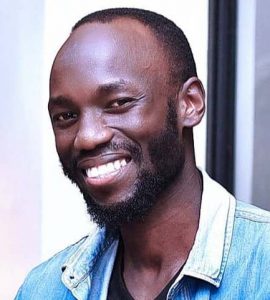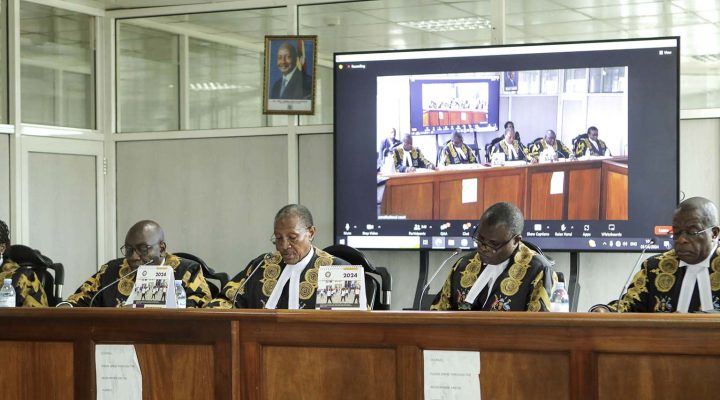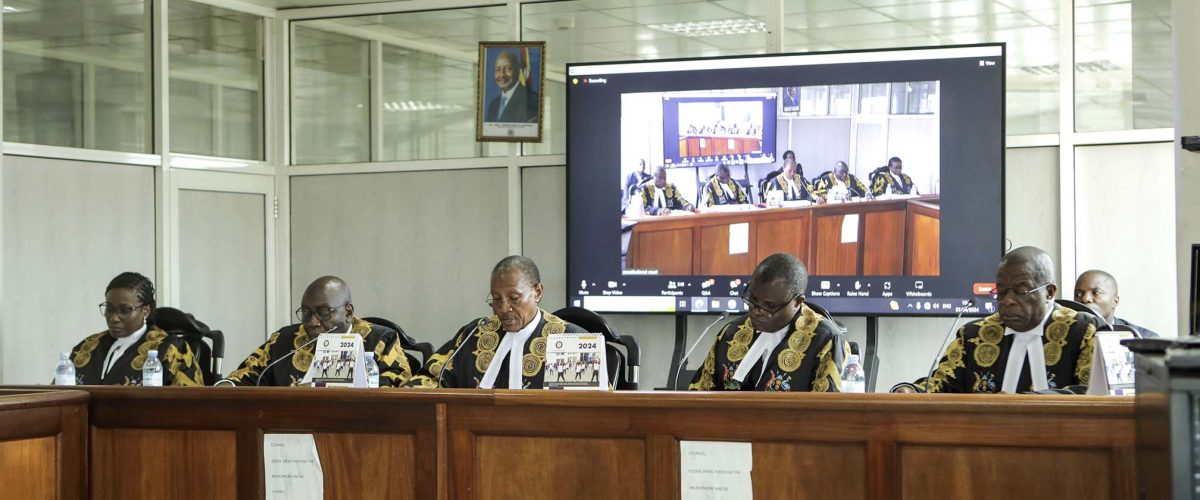Smarting from the disappointment of not having an anti-LGBTQ law passed by the Ugandan government last year reversed by the country’s Constitutional Court, members of the LGBTQ community in Uganda are rallying to further challenge the controversial act.

Nicholas Opiyo
Nicholas Opiyo, a Ugandan human rights lawyer, announced the plan after the Constitutional Court’s decision April 3 not to nullify the harsh anti-LGBTQ law signed into law May 29 by Ugandan President Yoweri Museveni.
The law was described as “draconian” by the Human Rights Campaign. The law prescribes the death penalty for anyone found guilty of “aggravated homosexuality,” along with other severe penalties for same-sex relations or the promotion of them.
A five-person panel of judges led by Richard Buteera, the country’s deputy chief justice, ruled April 3: “We decline to nullify the Anti-Homosexuality Act 2023 in its entirety, neither will we grant a permanent injunction against its enforcement.”
The jurists did, however, strike out aspects of the act they considered incongruous with international rights treaties, such as making it an offense to report same-sex acts or prohibiting renting property to LGBTQ people.
Uganda is a very conservative society, and the anti-LGBTQ bill had the backing of many political and religious leaders in the country and applauded the Constitutional Court judges’ decision.

Derrick Otim
Derrick Otim, a Ugandan journalist, told Baptist News Global he believes the judgment is proper. “There’s no bias at all. … We need to look at homosexually the way it really is; it is outrightly wrong and definitely punishable. The consequences should actually help people realize that this is something that is not acceptable in society and so they should desist from ever engaging in such acts. It’s so unnatural. … We don’t embrace it at all in our society. We don’t like it. It’s not a human right in the first place.”
Opiyo, who observed the court proceedings in Kampala, disagrees.
“To base a decision on public sentiments, purported cultural values and unfounded/unsubstantiated allegations of recruitment into homosexuality is strange, to say the least, ” he said via his X account. “You come to court expecting it to rise above public bigotry and sentiments. To that extent, it is a letdown, but we will see what next steps can be taken.”
Opiyo also said he had come under attack for his opposition to the anti-LGBTQ law.
“To those hurling all manner of insults at me for representing the people I did at the Constitutional Court in the anti-homosexuality case, I hear you,” he said. “You have the right to say the things you think about (freedom of thought and expression), and even though I will not join you in exchanging barbs, I respect your right to express your opinion. I hope we can have a meaningful discourse on the substantive issues raised before the court when you are done with the insults.”

Antony Blinken
U.S. Secretary of State Antony Blinken, reacting to the Constitutional Court ruling, said: “The announcement that some provisions of the Anti-Homosexuality Act have been removed by the Constitutional Court is a small and insufficient step toward safeguarding human rights.”
The remaining provisions of the Anti-Homosexuality Act, he said, “pose grave threats to the Ugandan people, especially LGBTQ Ugandans and their allies, undermine public health, clamp down on civic space, damage Uganda’s international reputation, and harm efforts to increase foreign investment.”
He called on Ugandans to respect the human dignity of all and provide equal protection to all individuals under the law.
The Human Rights Campaign said the law “severely and drastically restricts the rights of LGBTQ Ugandans to engage in public life or advocacy by expanding the definition of the ‘offense of homosexuality’ and criminalizing the ‘promotion of homosexuality.”
It said Uganda’s Constitutional Court has “turned its back on the dignity of LGBTQ Ugandans and failed to heed the call of Ugandan human rights defenders and the international community that sought to uphold human rights. With this ruling, the Anti-Homosexuality Act leaves LGBTQ Ugandans at great risk of imprisonment and violence.”
Alarmingly, “the portions of the law that were upheld by the court include the death penalty for some same-sex sexual relationships and criminalization of ‘promotion of homosexuality,’ HRC said.
Related articles:
World Bank suspends aid to Uganda over anti-gay laws
Egged on by evangelical influence, Ugandan Parliament passes harsh new anti-gay bill
What happens when Tom Ascol finds Ted Cruz to be too liberal and quotes Leviticus 20:13?
Passage of anti-homosexuality bill in Uganda rattles LGBTQ community in Kenya


